
Top Upcoming Crypto Coins - 14 High Potential Altcoins Not Trading Yet

Click here to buy Cryptocurrencies from Gate.io
Welcome to this comprehensive guide on upcoming crypto coins that have not yet started trading. In this article, we will explore 14 high-potential altcoins carefully selected by Ian Balina, the founder and CEO of Token Metrics. Ian has an impressive track record in the crypto space and has invested in numerous successful projects.
With a background in computer engineering and experience working at top tech companies, Ian brings a wealth of knowledge and insights to the table. His past investments include projects like Gameswift and Pixels, which have delivered significant returns for investors.
Why Listen to Token Metrics?
Token Metrics is a reputable platform that provides in-depth research and analysis of various blockchain projects. The team at Token Metrics has invested in over 30 different projects, carefully selecting those with the potential to provide substantial returns.
Their research has consistently delivered alpha in the form of hidden gems and early-stage investments.
Selection Criteria
The 14 projects featured in this article have been carefully chosen based on specific criteria. These criteria include a high tech score of 75% or above, strong fundamentals, long-term staying power, and the potential to enter the top 100 market cap.
It's important to note that investing in early-stage projects carries inherent risks, and individuals should conduct their own research and exercise caution.
How to Manage Risk?
Managing risk is crucial when investing in cryptocurrencies. One key strategy is to diversify your portfolio and not invest more than 5% of your total portfolio into any single project.
Token Metrics Ventures, for example, only allocates a maximum of 1% of its portfolio to early-stage projects. This ensures that the overall impact on the portfolio is minimized even if a project fails.
It's also important to stay updated on the latest market trends, news, and developments within the crypto industry. Also, setting realistic expectations and understanding that investing in early-stage projects carries both high potential rewards and high risks is essential.
Conducting thorough research and analyzing the team, technology, and market conditions can somewhat mitigate risks.
List of 14 Upcoming Altcoins Not Trading Yet
Now, let's delve into the 14 high-potential altcoins that have not yet started trading.
1. Gravity (GRVT)
Gravity, also known as GRVT, is a next-generation hybrid ZK Sync crypto exchange that aims to bring together decentralized finance (DeFi) and centralized finance (C-Fi). It offers self-custody with low fees, making it easy for users to trade. Gravity's key narratives include ZK Sync, DeFi, and DEXes.
One of the reasons why Token Metrics is excited about Gravity is its backing by a strong list of market makers, including QCP, Susquehanna Group, and Dolphy Digital. These institutional backers provide credibility and support to the project.
The vibe of Gravity is reminiscent of GMX from the previous cycle, which saw significant success. There is a confirmed airdrop for Gravity, making it an attractive option for potential investors.
2. Nillion
Nillion is a highly technical project that aims to build a blind computer for decentralized trust. It focuses on sharing secure data storage and privacy for AI, Deepin, and IoT applications. With a tech score of 77%, Nillion is a project that stands out due to its technical capabilities.
The key narrative for Nillion revolves around computing, privacy, AI, and Deepin. It competes with projects like Chainlink, Render, Ocean, and Marlin. Nillion's team comprises experienced professionals from major tech companies like Google, Facebook, Apple, and Uber. This expertise contributes to the project's strong technical foundation.
The vibes of Nillion are similar to those of Chainlink, a project that has proven its long-term staying power. Nillion's probable airdrop makes it an intriguing option for investors looking to capitalize on its potential.
3. My Pet Hooligan
My Pet Hooligan is an exciting gaming project that allows users to adopt and train digital pets in an interactive world. Players can engage in various activities, including fighting and gaming. With a fundamental score of 77%, My Pet Hooligan has received positive feedback and has already generated over $60 million in NFT sales.
The gaming industry has experienced significant growth in recent years, and My Pet Hooligan aims to tap into this market. The project's confirmed airdrop and play-to-earn game mechanics make it an attractive opportunity for investors.
The vibes of My Pet Hooligan are reminiscent of Axie Infinity, a project that has seen tremendous success and has become a major player in the gaming sector.
Click here to buy Cryptocurrencies from Gate.io
4. Parcl
Parcl is a unique project that aims to create a platform for trading real estate market values using city indexes. It effectively creates a derivatives market for real estate indices, allowing users to go long or short on different markets without directly owning the physical assets. With a fundamental score of 77%, Parcl stands out as a project with long-term staying power.
One of the reasons why Token Metrics is bullish on Parcl is its ability to survive bear markets. Similar to how Synthetix performed well during a bear market, Parcl provides an on-ramp for investors to trade real estate markets.
The vibes of Parcl are reminiscent of Helium Network, a project that has demonstrated long-term growth and resilience. There is a confirmed airdrop for Parcl, making it an intriguing opportunity for investors.
5. Nibiru
Nibiru is a proof-of-stake blockchain that powers decentralized applications (dApps). It focuses on DeFi, and real-world assets and acts as a layer-one solution for the Cosmos ecosystem. With a tech score of 81%, Nibiru competes with projects like Solana, Sey, Injective, Neutron, and Archway.
Token Metrics is excited about Nibiru due to its competitive advantages over similar projects. For instance, Nibiru has a higher tech score than Neutron, a project with a current valuation of $1.5 billion. This suggests that Nibiru can potentially achieve a higher valuation in the future.
The vibes of Nibiru are reminiscent of Injective, a successful project that focuses on being an L1 for DeFi. Nibiru has a confirmed airdrop, adding to its appeal to potential investors.
6. ReadyGG
Ready or ReadyGG is a Web3 gaming ecosystem that aims to onboard Web2 games into the Web3 world. The project provides tools and an SDK for game developers to add Web3 components to their games. With a tech score of 81%, Ready or ReadyGG competes with projects like Gainswift and Immutable X.
One of the reasons why Token Metrics is bullish on Ready or ReadyGG is its strong business development team and rapid onboarding of gaming studios.
The project's vibes are reminiscent of Immutable X, a successful project focusing on bringing scalability to the gaming industry. Ready or ReadyGG has a probable airdrop, making it an attractive option for investors looking to capitalize on the future growth of the gaming sector.
7. Dolomite
Dolomite is a unique project that combines the strengths of a decentralized exchange (DEX) and a lending protocol. Built on Arbitrum, a layer two solution, Dolomite aims to provide a capital-efficient modular protocol for users. With a tech score of 85%, Dolomite competes with projects like DYDX, Synthetix, and GMX.
Token Metrics is excited about Dolomite due to its capital efficiency and ability to provide both DEX and lending functionalities. The project is backed by Coinbase Ventures, providing additional credibility and support.
The vibes of Dolomite are reminiscent of DYDX, a successful project that focuses on being an L1 for DeFi. Dolomite has a confirmed airdrop, making it an intriguing option for potential investors.
8. Movement Labs
Movement Labs is a project that aims to build a modular blockchain network for the Move language. By making Move available on other layer two solutions like Ethereum and Avalanche, Movement Labs enables developers to code and run Move applications on various blockchains. With a tech score of 85%, Movement Labs competes with projects like Eclipse and Ethereum's rollup solutions.
Token Metrics is bullish on Movement Labs due to its potential to become a move-based ZK layer two on Ethereum. The project's vibes are reminiscent of Stacks, a successful L2 project on Bitcoin. Movement Labs has a confirmed airdrop, making it an attractive opportunity for investors looking to capitalize on the future of blockchain development.
9. Ola
Ola is a ZK virtual machine that enables secure private computations using zero-knowledge knowledge proofs. By bringing secure and private computations to the blockchain, Ola aims to provide users with enhanced privacy and security. With a tech score of 87%, Ola competes with projects like Elio, Aztec, and Ten (formerly known as Obscuro).
Token Metrics is excited about Ola due to its strong team, which includes former members of the Qtum project. The team's experience and expertise contribute to Ola's technical foundation.
The vibes of Ola are reminiscent of Phantom, a successful project focusing on GPU computing for AI. Ola has a probable airdrop, making it an intriguing option for potential investors.
10. Lurk
Lurk is a highly technical project that aims to build a ZK compute platform with a specialized language for developing private applications that are formally verifiable. With a tech score of 87%, Lurk competes with projects like Cardano, Risk Zero, and PeliHedra.
Token Metrics is bullish on Lurk due to its ability to formally verify ZK proofs, similar to Cardano's approach to formal verification.
The vibes of Lurk are reminiscent of Cardano, a project known for its focus on formal verification and strong team. Lurk has a probable airdrop, making it an attractive opportunity for investors looking to capitalize on the potential of formal verification in blockchain applications.
11. Nimble
Nimble is an exciting AI project that aims to democratize AI by allowing decentralized composable AI models and data for developers. With a tech score of 87%, Nimble competes with projects like BitTensor and Fetch.
Token Metrics is excited about Nimble due to its strong team, which includes engineers from major tech companies like Google, Facebook, Apple, and Uber. The team's expertise in machine learning and AI adds credibility to the project.
The vibes of Nimble are reminiscent of Render Network, a successful AI project focusing on GPU computing. Nimble has a probable airdrop, making it an intriguing option for investors looking to capitalize on the future of AI.
12. Ten
Ten, formerly known as Obscuro, is a layer two roll-up solution that focuses on encrypting Ethereum transactions. With a tech score of 89%, Ten competes with projects like Aztec, Alio, Ola, Secret Network, and Railgun.
Token Metrics is bullish on Ten due to its strong team, which includes professionals from R3 and Koda. This enterprise blockchain background adds credibility to the project.
The vibes of Ten are reminiscent of Algorand, a successful project known for its focus on enterprise adoption. Ten has a confirmed airdrop and plans to launch in Q2, making it an attractive opportunity for potential investors.
13. Dojima Network
Dojima Network aims to build an Omni-Chain Layer 1 platform for various applications like Web3, DeFi, NFTs, and gaming. With a tech score of 89%, Dojima Network competes with projects like ZetaChain, Pokedat, and Cosmos.
Token Metrics is excited about Dojima Network due to its under-the-radar potential. The project is still relatively unknown, allowing investors to get in early.
The vibes of Dojima Network are reminiscent of Polygon, a project that started small but has grown into a major player in the blockchain space. Dojima Network has confirmed airdrop makes it an intriguing option for potential investors.
14. Peaq Network
Peaq Network is an L1 blockchain platform for real-world applications, particularly Deepin. With a tech score of 89%, Peaq Network competes with projects like Solana and IoTeX.
Token Metrics is bullish on Peaq Network due to its booming ecosystem and strong support from companies like Tesla, Sony, Bosch, and Jaguar. The project aims to provide a comprehensive solution for developers building Deepin applications.
The vibes of Peaq Network are reminiscent of Solana, a successful project that has achieved significant market cap growth. Peaq Network has a confirmed airdrop, making it an attractive opportunity for potential investors.
Conclusion
In this article, we have explored 14 high-potential altcoins that have not yet started trading. These projects have been carefully selected based on their tech scores, fundamentals, long-term staying power, and potential to enter the top 100 market cap.
However, conducting thorough research and exercising caution before making investment decisions is crucial. Investing in cryptocurrencies carries risks, and it is important to consult with professionals and make informed choices.
Disclaimer
The information provided on this website does not constitute investment advice, financial advice, trading advice, or any other advice, and you should not treat any of the website's content as such.
Token Metrics does not recommend buying, selling, or holding any cryptocurrency. Conduct your due diligence and consult your financial advisor before making investment decisions.
Click here to buy Cryptocurrencies from Gate.io

.svg)

Create Your Free Token Metrics Account

.png)




%201.svg)
%201.svg)


%201.svg)




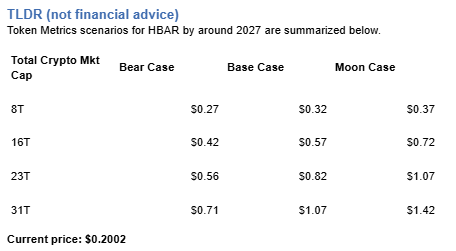

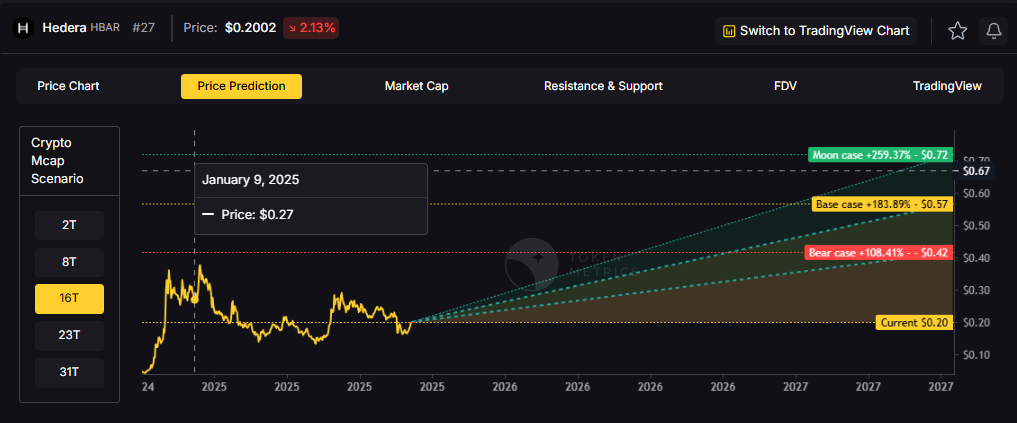


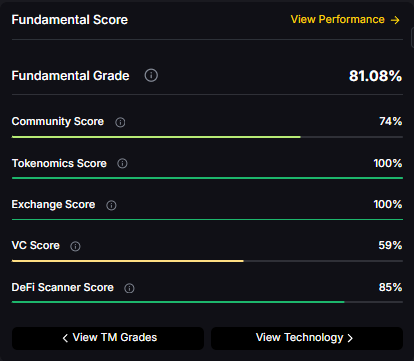
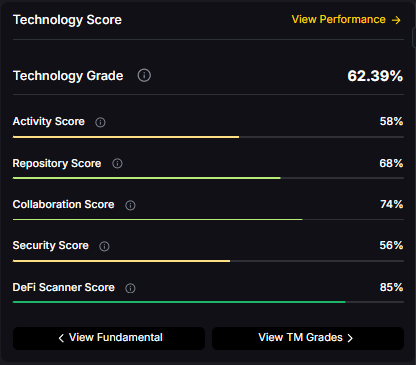

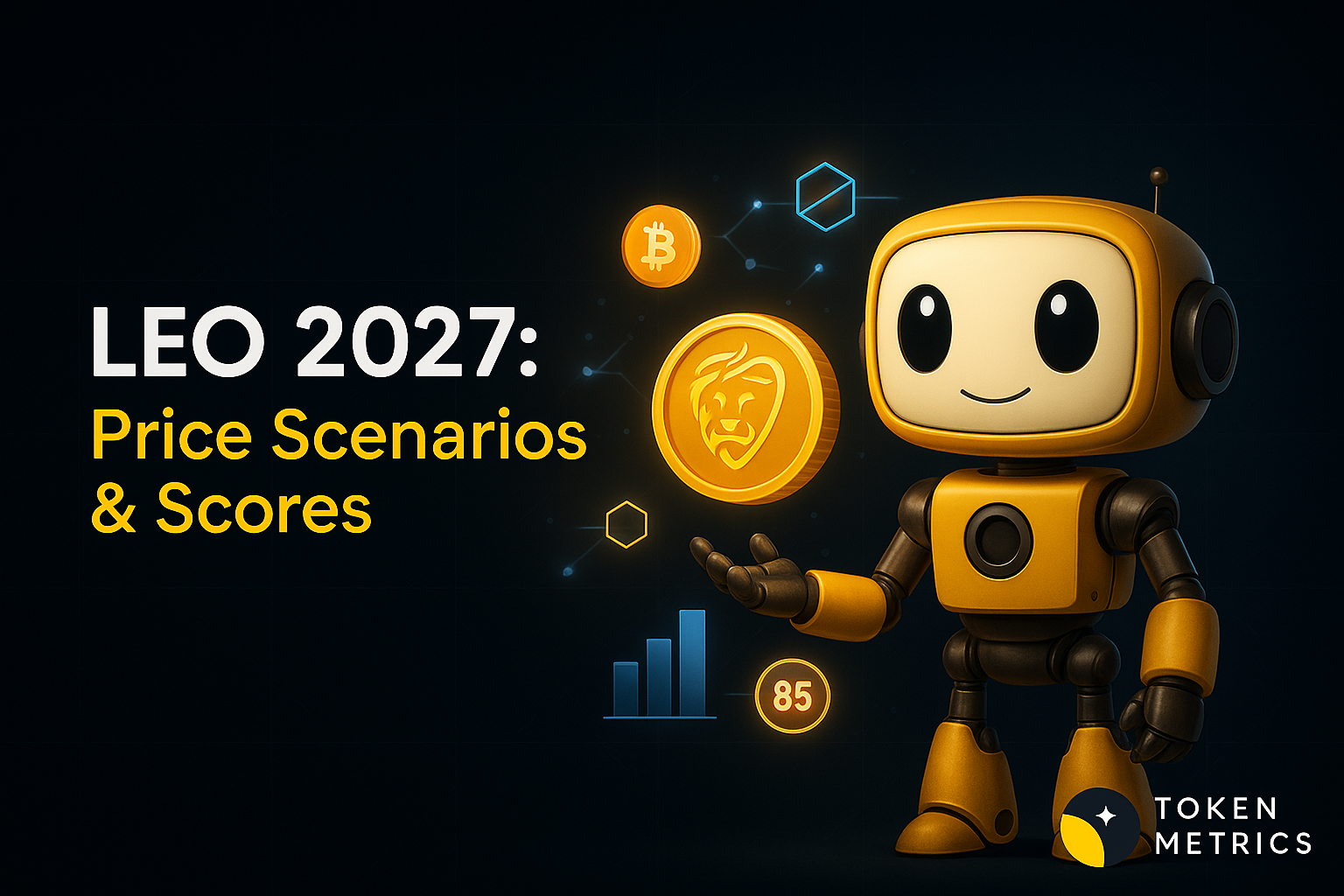
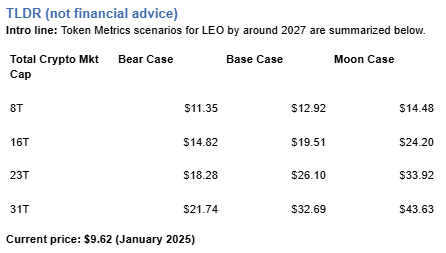
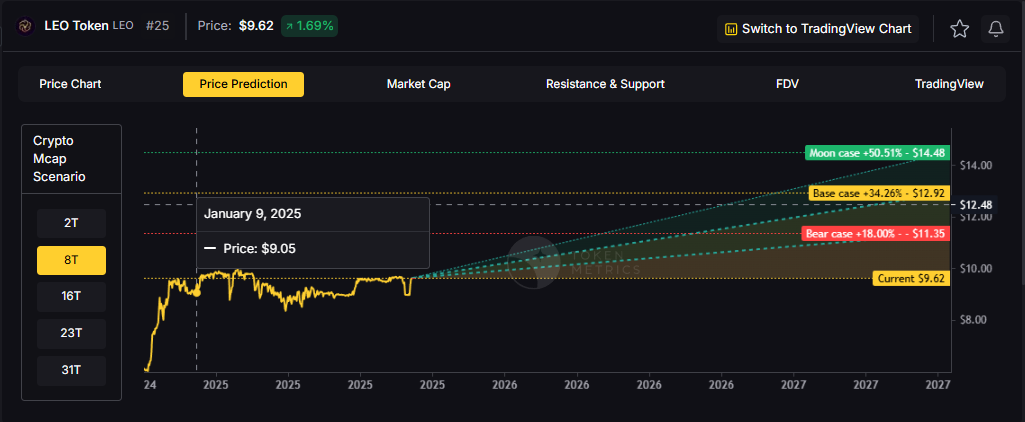
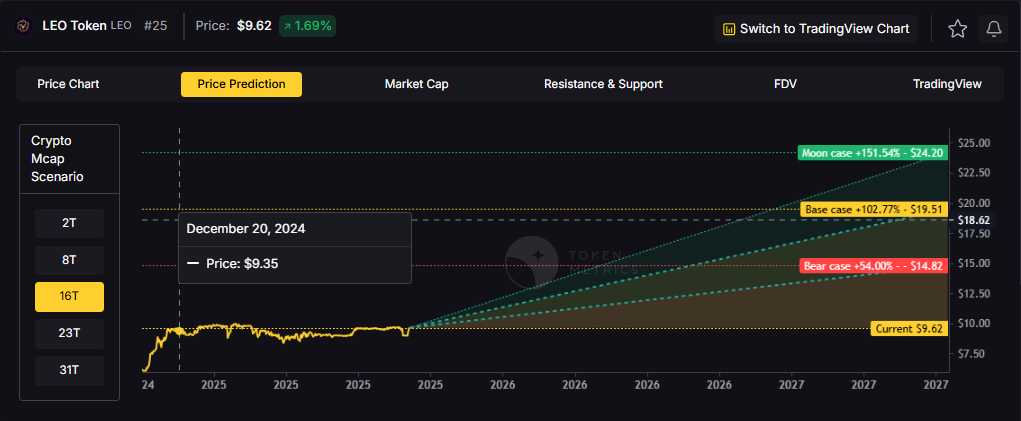
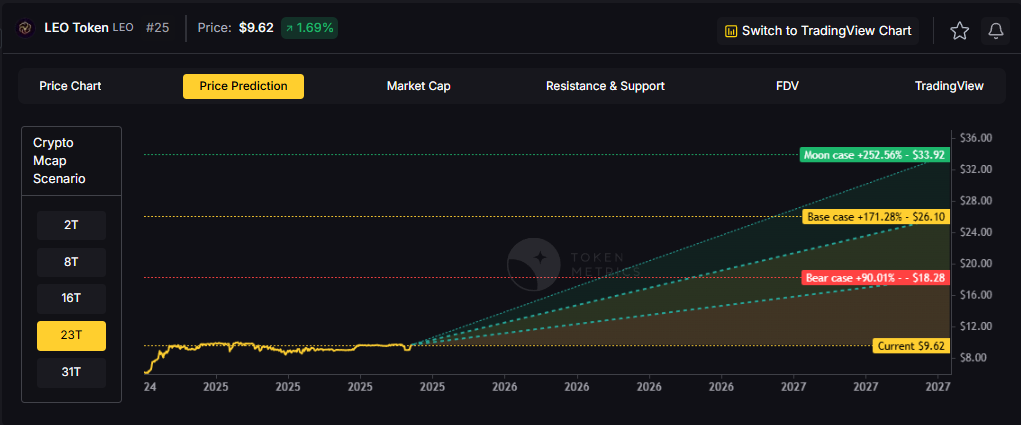
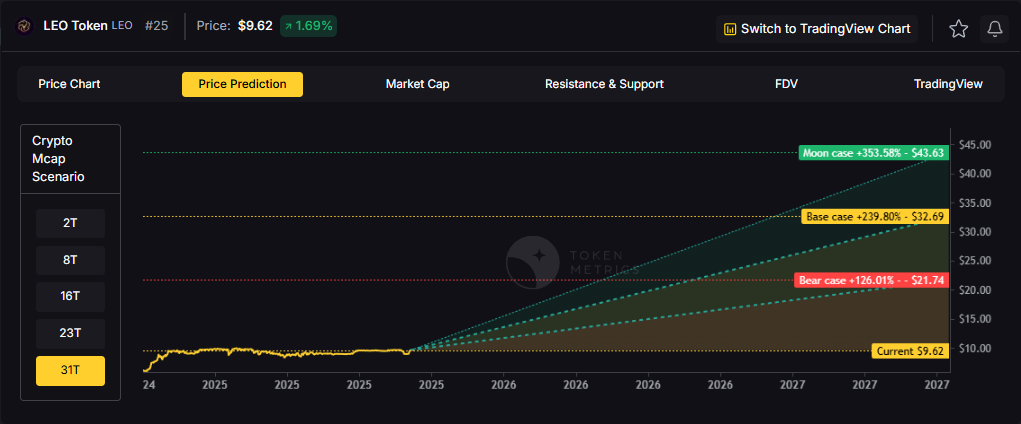
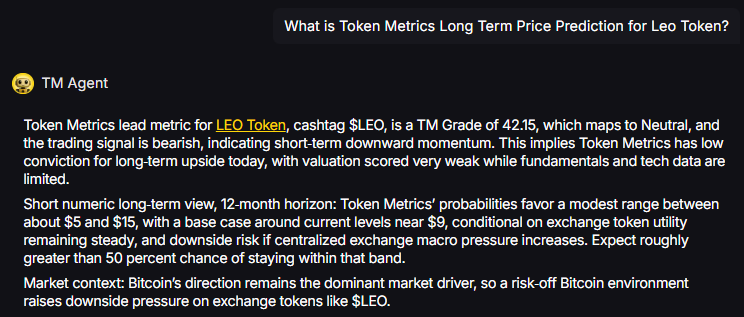

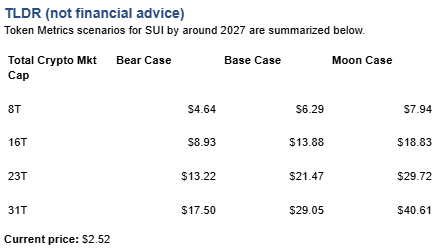
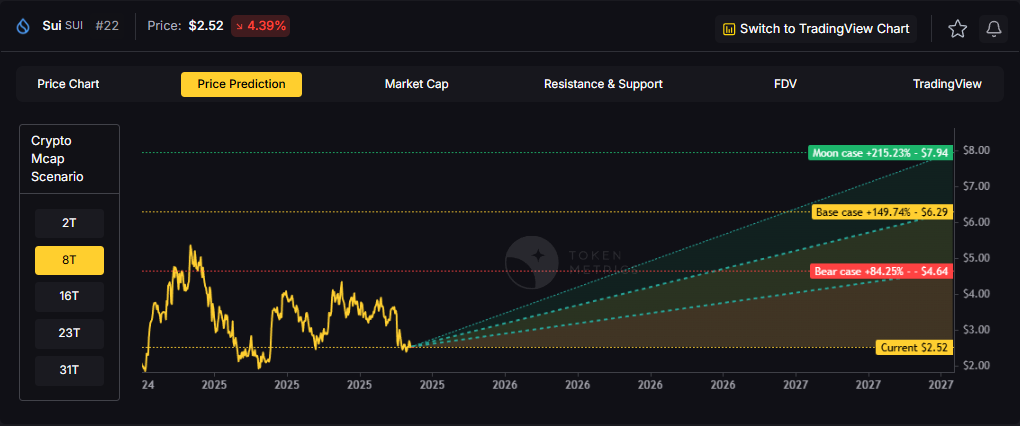
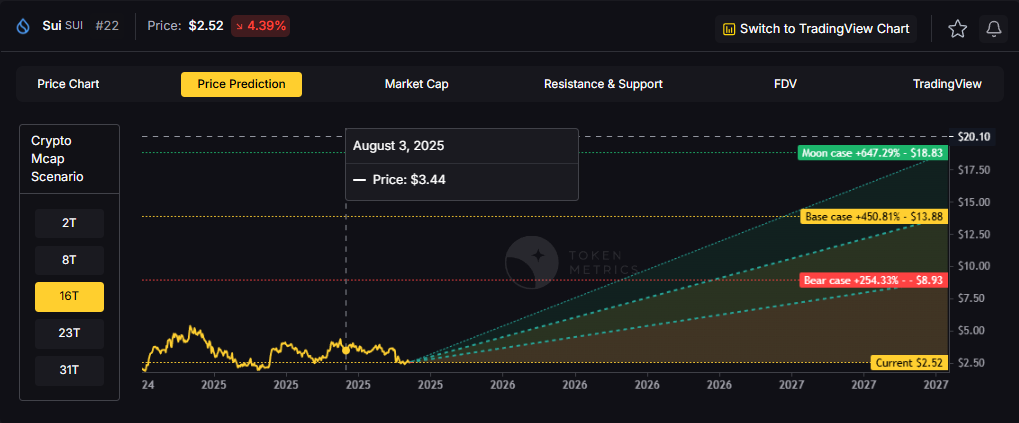

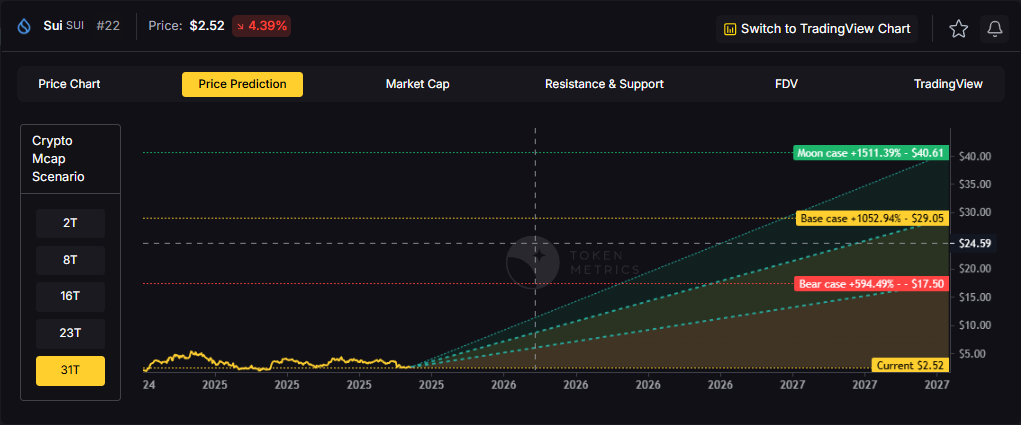
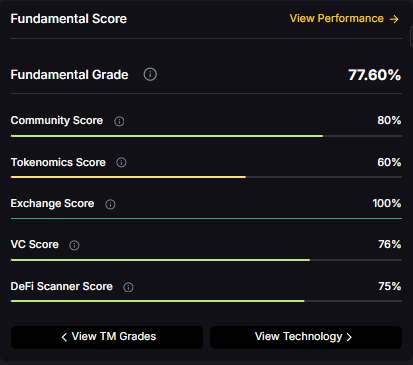
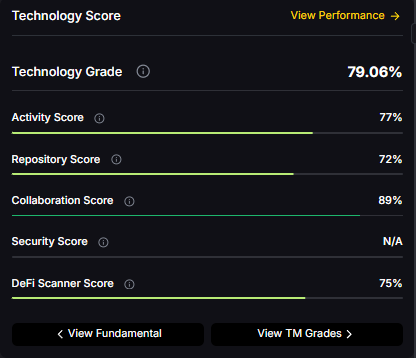




.svg)




.png)